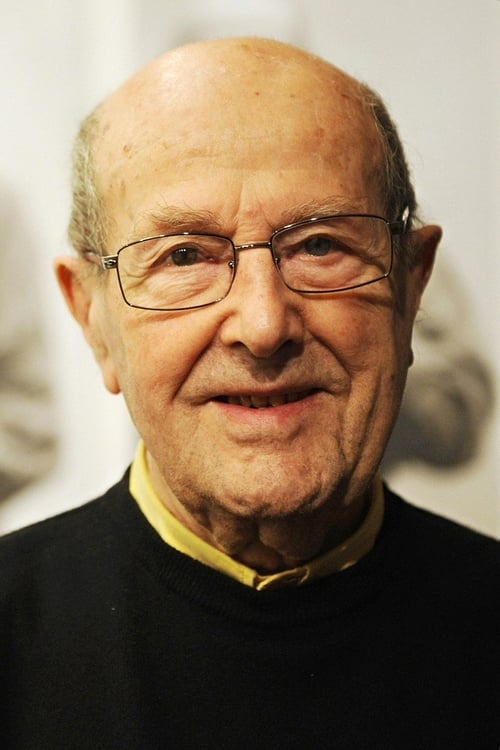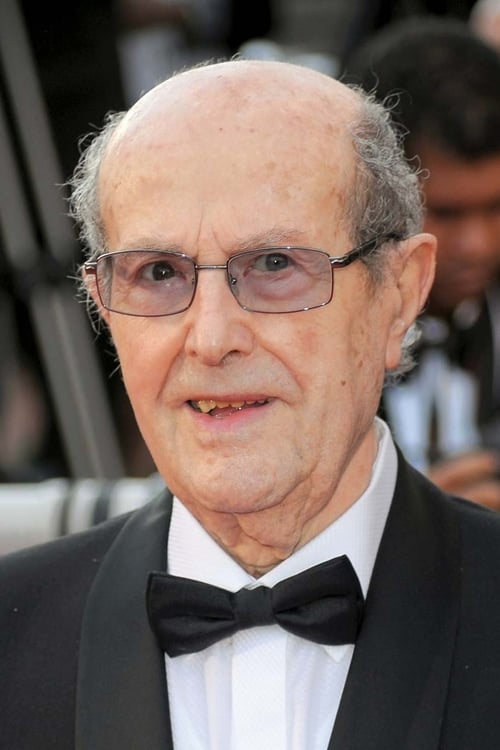
Director of Photography
Manoel de Oliveira's final work revisits one of his earliest films and celebrates a century of industrialization in Portugal.

Director
Manoel de Oliveira's final work revisits one of his earliest films and celebrates a century of industrialization in Portugal.

Editor
A long-hidden, personal doc about leaving a beloved house by the late, revered Portuguese director Manoel de Oliveira.

Screenplay
A long-hidden, personal doc about leaving a beloved house by the late, revered Portuguese director Manoel de Oliveira.

Director
A long-hidden, personal doc about leaving a beloved house by the late, revered Portuguese director Manoel de Oliveira.

Self
A long-hidden, personal doc about leaving a beloved house by the late, revered Portuguese director Manoel de Oliveira.
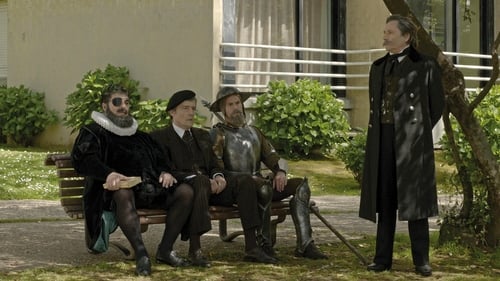
Screenplay
Don Quixote, Luís de Camões, Camilo Castelo Branco and Teixeira de Pascoaes meet in an eternal garden in the middle of a modern city and talk about life.

Director
Don Quixote, Luís de Camões, Camilo Castelo Branco and Teixeira de Pascoaes meet in an eternal garden in the middle of a modern city and talk about life.

Director
Every year the Viennale invites a famous director to produce a short film as the festival trailer. In 2014 the choice has fallen on the 105-year old Manoel de Oliveira.

Director
Thirteen filmmakers talk about Henri Langlois and their relationship with him.

Self
Thirteen filmmakers talk about Henri Langlois and their relationship with him.

Screenplay
La ciudad portuguesa de Guimarães fue, durante el año 2012, Capital Europea del año. El filme Centro Histórico es la combinación del trabajo cuatro cineastas sobre cuatro distintas historias que tiene lugar allí. El primer episodio, titulado El tabernero, está dirigido por Aki Kaurismäki y tiene como protagonista a un hombre solitario, que ve pasar la vida observando los distintos acontecimientos, pero sin experimentar nada de primera mano. El segundo episodio tiene como nombre Dulce exorcista, su director es Pedro Costa e indaga en el pasado colonial.
Finalmente, el último episodio del filme, El conquistador conquistado, tiene como director a Manoel de Oliveira, que hace una sátira de los turistas que toman fotografías sin parar del centro de Guimarães.

Director
La ciudad portuguesa de Guimarães fue, durante el año 2012, Capital Europea del año. El filme Centro Histórico es la combinación del trabajo cuatro cineastas sobre cuatro distintas historias que tiene lugar allí. El primer episodio, titulado El tabernero, está dirigido por Aki Kaurismäki y tiene como protagonista a un hombre solitario, que ve pasar la vida observando los distintos acontecimientos, pero sin experimentar nada de primera mano. El segundo episodio tiene como nombre Dulce exorcista, su director es Pedro Costa e indaga en el pasado colonial.
Finalmente, el último episodio del filme, El conquistador conquistado, tiene como director a Manoel de Oliveira, que hace una sátira de los turistas que toman fotografías sin parar del centro de Guimarães.

Director
An anthology film following different stories around the theme of invisibility in the modern world.

An exploration of the movie "The strange case of Angelica" and an understanding Manoel de Oliveira's cinema.

Screenplay
A group of tourists arrives to the historical center of Guimarães. The camera goes up over the shoulder of Alfonso Henriques' statue. The first king of Portugal, holding up his sword, demands respect. Nevertheless, from there we see how the group of tourists take over the place and sourround the Conqueror with their cameras.

Director
A group of tourists arrives to the historical center of Guimarães. The camera goes up over the shoulder of Alfonso Henriques' statue. The first king of Portugal, holding up his sword, demands respect. Nevertheless, from there we see how the group of tourists take over the place and sourround the Conqueror with their cameras.

Screenplay
Ambientada en el siglo XIX. Un honrado y pobre patriarca se sacrifica para salvar la vida de su hijo, un fugitivo. (FILMAFFINITY)

Director
Ambientada en el siglo XIX. Un honrado y pobre patriarca se sacrifica para salvar la vida de su hijo, un fugitivo. (FILMAFFINITY)

Self
Agnès Varda travels around the world to meet friends, artists and filmmakers for an expansive view of the global contemporary art scene.

Writer
Penúltimo largometraje de Manoel de Oliveira, que esta vez se divierte con una película de fantasmas en la que un fotógrafo emprende un viaje alucinado después de retratar a la hija muerta de los propietarios de un hotel. Sin caer en la nostalgia del que sabe que la visita de la Parca está proxima, el director nos invita a un viaje mágico en el que la realidad y la ficción se funden para darnos a entender que la vida y la muerte son una y la misma cosa. Contada con la sonrisa perpetua en los labios, la aventura de Isaac mantiene el encanto y la frescura del cine de la época silente, pero no su característica ingenuidad. Oliveira que, como el mismísimo Diablo, sabe más por viejo que por diablo, como él se divierte, manejando como un titiritero al desdichado fotógrafo.

Director
Penúltimo largometraje de Manoel de Oliveira, que esta vez se divierte con una película de fantasmas en la que un fotógrafo emprende un viaje alucinado después de retratar a la hija muerta de los propietarios de un hotel. Sin caer en la nostalgia del que sabe que la visita de la Parca está proxima, el director nos invita a un viaje mágico en el que la realidad y la ficción se funden para darnos a entender que la vida y la muerte son una y la misma cosa. Contada con la sonrisa perpetua en los labios, la aventura de Isaac mantiene el encanto y la frescura del cine de la época silente, pero no su característica ingenuidad. Oliveira que, como el mismísimo Diablo, sabe más por viejo que por diablo, como él se divierte, manejando como un titiritero al desdichado fotógrafo.

Writer
The characters from a historical piece of art come to life to discuss poignant themes such as war and world peace.

Director
The characters from a historical piece of art come to life to discuss poignant themes such as war and world peace.

Self
The Midnight Sun Film Festival is held every June in the Finnish village of Sodankylä beyond the arctic circle — where the sun never sets. Founded by Aki and Mika Kaurismäki along with Anssi Mänttäri and Peter von Bagh in 1985, the festival has played host to an international who’s who of directors and each day begins with a two-hour discussion. To mark the festival’s silver anniversary, festival director Peter von Bagh edited together highlights from these dialogues to create an epic four-part choral history of cinema drawn from the anecdotes, insights, and wisdom of his all-star cast: Coppola, Fuller, Forman, Chabrol, Corman, Demy, Kieslowski, Kiarostami, Varda, Oliveira, Erice, Rouch, Gilliam, Jancso — and 64 more. Ranging across innumerable topics (war, censorship, movie stars, formative influences, America, neorealism) these voices, many now passed away, engage in a personal dialogue across the years that’s by turns charming, profound, hilarious and moving.

Editor
De camino al Algarve, un hombre decide contarle a una compañera de viaje el amor más grande y más trágico de su vida. Trabaja como contable para su tío en Lisboa. Desde el balconcito de su oficina puede ver la ventana de la casa enfrente, donde vive una chica joven a la que le gusta pararse frente a la ventana refrescándose con un abanico chino. Él se enamora de ella a primera vista, pero su tío no aprueba sus sentimientos.

Screenplay
De camino al Algarve, un hombre decide contarle a una compañera de viaje el amor más grande y más trágico de su vida. Trabaja como contable para su tío en Lisboa. Desde el balconcito de su oficina puede ver la ventana de la casa enfrente, donde vive una chica joven a la que le gusta pararse frente a la ventana refrescándose con un abanico chino. Él se enamora de ella a primera vista, pero su tío no aprueba sus sentimientos.

Director
De camino al Algarve, un hombre decide contarle a una compañera de viaje el amor más grande y más trágico de su vida. Trabaja como contable para su tío en Lisboa. Desde el balconcito de su oficina puede ver la ventana de la casa enfrente, donde vive una chica joven a la que le gusta pararse frente a la ventana refrescándose con un abanico chino. Él se enamora de ella a primera vista, pero su tío no aprueba sus sentimientos.

Himself
A tribute documentary to Manoel de Oliveira, on occasion of his 100th birthday.
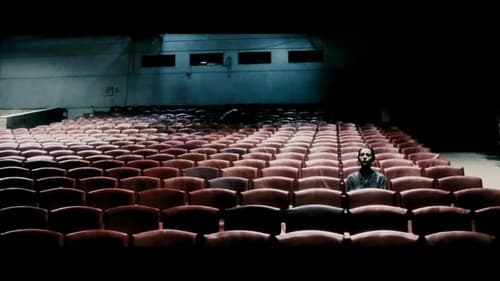
Writer
Reunión de 33 cortometrajes de unos tres minutos cada uno realizados por 35 directores con motivo del 60 aniversario del Festival de Cannes.

Director
Reunión de 33 cortometrajes de unos tres minutos cada uno realizados por 35 directores con motivo del 60 aniversario del Festival de Cannes.

Himself
Joáo Bénard da Costa, director of the Portuguese National Film Archives [deceased in 2009], interviews the dean of contemporaneous film directors [96-years-old then]. Two humanists of different philosophical backgrounds, both with their long, entire lives dedicated to culture in general (music, painting, literature) and to film in particular, discuss freely, sometimes haltingly, the director's power as a creator or a magician, the philosophy beyond particular scenes in classic movies, film technique, the importance of color, sound and music to films, art versus entertainment, and much more. Their talk takes place in a museum room, seating in front of "The Annunciation" (a 1510 oil painting by João Vaz, a Portuguese artist), which eventually leads to a discussion of 'Leonardo da Vinci', and the relationship between a trend-setter master and his disciples.

Screenplay
A true story of a doctor and his wife who went on a journey in order to prove that discoverer Christopher Columbus was in fact Portuguese. Inspired by the book "Cristóvão Colon Era Português".

Director
A true story of a doctor and his wife who went on a journey in order to prove that discoverer Christopher Columbus was in fact Portuguese. Inspired by the book "Cristóvão Colon Era Português".

Manuel Luciano (2007)
A true story of a doctor and his wife who went on a journey in order to prove that discoverer Christopher Columbus was in fact Portuguese. Inspired by the book "Cristóvão Colon Era Português".

Director
A silent film depicting a meeting between Nikita Khrushchev and Pope John XXIII is screened.

Writer
38 años después de "Belle de jour" de Luis Buñuel, dos personajes de la película vuelven a cruzarse con el misterio de un secreto que sólo conoce el personaje masculino y cuya revelación es imprescindible para el personaje femenino. Aunque ella le evita, él sigue sus pasos hasta que finalmente consigue que le preste atención al confesarle su intención de revelarle el secreto. Fijan una cita, una cena durante la cual ella, ahora viuda, aguarda la esperada revelación: qué es lo que él le dijo a su marido cuando éste estaba mudo y paralítico por un disparo efectuado por un amante de ella. La situación es tensa y ella termina sin saber qué es lo que realmente pasó. Se trata de la venganza de él porque la mujer nunca le permitió poseerla.

Director
38 años después de "Belle de jour" de Luis Buñuel, dos personajes de la película vuelven a cruzarse con el misterio de un secreto que sólo conoce el personaje masculino y cuya revelación es imprescindible para el personaje femenino. Aunque ella le evita, él sigue sus pasos hasta que finalmente consigue que le preste atención al confesarle su intención de revelarle el secreto. Fijan una cita, una cena durante la cual ella, ahora viuda, aguarda la esperada revelación: qué es lo que él le dijo a su marido cuando éste estaba mudo y paralítico por un disparo efectuado por un amante de ella. La situación es tensa y ella termina sin saber qué es lo que realmente pasó. Se trata de la venganza de él porque la mujer nunca le permitió poseerla.

Writer
Film about Calouste Gulbenkian, produced for the celebrations of the 50th anniversary of the Calouste Gulbenkian Foundation.

Director
Film about Calouste Gulbenkian, produced for the celebrations of the 50th anniversary of the Calouste Gulbenkian Foundation.

Himself
A 58 minute documentary about the life of João Bénard da Costa.
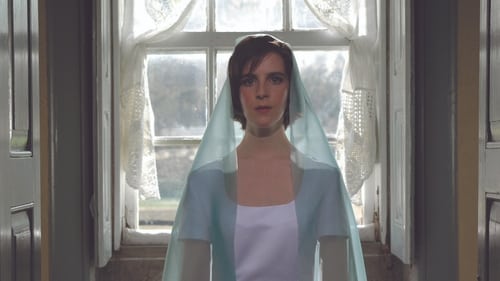
Writer
Luciano, sale de prisión y es llevado por su hermano, Flórido, a casa de Alfreda, donde trabajará como sirviente. Alfreda le dice que su mayor deseo es que se le aparezca la virgen, lo que deja a Luciano admirado. Además de todo, ahora la rica señora viene con sus pretensiones sublimes. ¿No le bastaba con tener un Aston Martin y un Jaguar aparcado a la puerta de casa, ni tener diez vestidos para cada estación? Todo fue culpa del profesor Heschel, o de quien fuera… Ir más allá de la promesa sería una herejía. Alfreda dijo que no descansaría mientras no viera a Maria y le hiciera unas cuantas preguntas. Filipe Quinta, el Falsificador, afirma tener la solución. Sin embargo, Bahia, su marido, escuchaba música…

Director
Luciano, sale de prisión y es llevado por su hermano, Flórido, a casa de Alfreda, donde trabajará como sirviente. Alfreda le dice que su mayor deseo es que se le aparezca la virgen, lo que deja a Luciano admirado. Además de todo, ahora la rica señora viene con sus pretensiones sublimes. ¿No le bastaba con tener un Aston Martin y un Jaguar aparcado a la puerta de casa, ni tener diez vestidos para cada estación? Todo fue culpa del profesor Heschel, o de quien fuera… Ir más allá de la promesa sería una herejía. Alfreda dijo que no descansaría mientras no viera a Maria y le hiciera unas cuantas preguntas. Filipe Quinta, el Falsificador, afirma tener la solución. Sin embargo, Bahia, su marido, escuchaba música…

A conversation between the filmmaker Manoel de Olivieira and the writer Agustina Bessa-Luís.

Himself (archive footage)
The newsreel series Jornal Português (1938-1951) was produced for the Secretariat of National Propaganda (SPN/SNI) by the "Portuguese Newsreel Society" (SPAC), under the technical supervision of António Lopes Ribeiro. It was conceived and employed as part of the propaganda machinery of Salazar's regime. Screened in cinema theatres prior to the main feature film, each issue of Jornal had approximately ten minutes in length and covered a variety of official government acts, national political news, major sports events and other assorted social and cultural affairs. Jornal Português is not only an indispensable document for the history of Estado Novo's propaganda, but also an unparalleled audiovisual archive of 1940s Portugal.

Art Direction
A satirical short film about technology.

Editor
A satirical short film about technology.

Screenplay
A satirical short film about technology.

Director
A satirical short film about technology.

Screenplay
Historia sobre el Rey Sebastián I de Portugal (el que originó el mito del sebastianismo), un rey obsesionado con reemprender las gestas bélicas de los antiguos reyes de Portugal a pesar de que su reino está empobrecido. La historia se basa en una novela de José Regio.

Director
Historia sobre el Rey Sebastián I de Portugal (el que originó el mito del sebastianismo), un rey obsesionado con reemprender las gestas bélicas de los antiguos reyes de Portugal a pesar de que su reino está empobrecido. La historia se basa en una novela de José Regio.
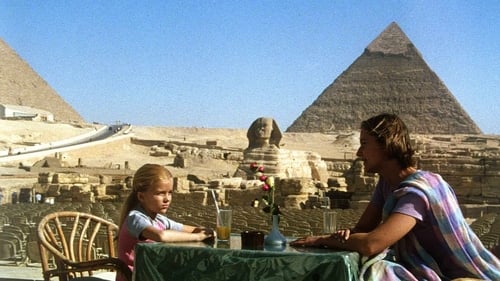
Writer
Rosa María, una profesora de Historia de la Universidad de Lisboa, emprende con su hija María Joana un crucero por el Mediterráneo que las llevará desde Pompeya a Atenas, pasando por Estambul y Egipto. Al final, debe reunirse con su marido en Bombay, desde donde saldrán de vacaciones. Descubre así parajes que sólo conocía a través de los libros. Durante el crucero, conoce a tres mujeres y a un hombre que le producen una profunda impresión: una prestigiosa empresaria francesa, una famosa modelo italiana ya retirada, una actriz y profesora de canto griega y un americano de origen polaco, que es el capitán del barco. Las cuatro cenan con el capitán, y cada una habla en su lengua materna, aunque todos comprenden lo que quiere decir; se reproduce así una Torre de Babel idílica. Sin embargo, cuando se dirigen hacia el Golfo Pérsico, ocurre algo que perturbará la cena.

Director
Rosa María, una profesora de Historia de la Universidad de Lisboa, emprende con su hija María Joana un crucero por el Mediterráneo que las llevará desde Pompeya a Atenas, pasando por Estambul y Egipto. Al final, debe reunirse con su marido en Bombay, desde donde saldrán de vacaciones. Descubre así parajes que sólo conocía a través de los libros. Durante el crucero, conoce a tres mujeres y a un hombre que le producen una profunda impresión: una prestigiosa empresaria francesa, una famosa modelo italiana ya retirada, una actriz y profesora de canto griega y un americano de origen polaco, que es el capitán del barco. Las cuatro cenan con el capitán, y cada una habla en su lengua materna, aunque todos comprenden lo que quiere decir; se reproduce así una Torre de Babel idílica. Sin embargo, cuando se dirigen hacia el Golfo Pérsico, ocurre algo que perturbará la cena.

Self
Life and legacy of Agostinho da Silva. Traversing the biographical journey, the life and work of the Luso-Brazilian philosopher, this work has testimonies from himself and various personalities of Portugal and Brazil that allow us to unravel his personality and multifaceted thought.

Editor
Aunque Antonio pertenece a una rica familia y José es hijo de la sirvienta, han compartido su infancia bajo la protectora mirada de la criada, atenta a sus mínimos gestos. Con el paso de los años el amor estrechará los lazos entre ellos dos: Antonio se casa con Camila, de la cual José siempre ha estado enamorado, y tiene por amante a la peligrosa Vanessa, socia de José en oscuros e inconfesables negocios. El diablo interviene y se burla cruelmente de la criada que siempre ha intentado en vano conjurar la mala suerte. La trama de estos cuatro destinos entrecruzados pasará por las llamas del infierno.

Screenplay
Aunque Antonio pertenece a una rica familia y José es hijo de la sirvienta, han compartido su infancia bajo la protectora mirada de la criada, atenta a sus mínimos gestos. Con el paso de los años el amor estrechará los lazos entre ellos dos: Antonio se casa con Camila, de la cual José siempre ha estado enamorado, y tiene por amante a la peligrosa Vanessa, socia de José en oscuros e inconfesables negocios. El diablo interviene y se burla cruelmente de la criada que siempre ha intentado en vano conjurar la mala suerte. La trama de estos cuatro destinos entrecruzados pasará por las llamas del infierno.

Director
Aunque Antonio pertenece a una rica familia y José es hijo de la sirvienta, han compartido su infancia bajo la protectora mirada de la criada, atenta a sus mínimos gestos. Con el paso de los años el amor estrechará los lazos entre ellos dos: Antonio se casa con Camila, de la cual José siempre ha estado enamorado, y tiene por amante a la peligrosa Vanessa, socia de José en oscuros e inconfesables negocios. El diablo interviene y se burla cruelmente de la criada que siempre ha intentado en vano conjurar la mala suerte. La trama de estos cuatro destinos entrecruzados pasará por las llamas del infierno.
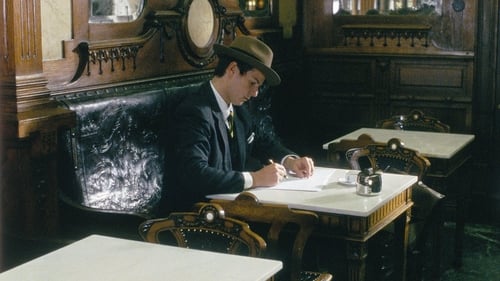
Writer
Manoel de Oliveira's autobiographical documentary about returning to his hometown.

Himself / Narrator / The Thief
Manoel de Oliveira's autobiographical documentary about returning to his hometown.

Director
Manoel de Oliveira's autobiographical documentary about returning to his hometown.
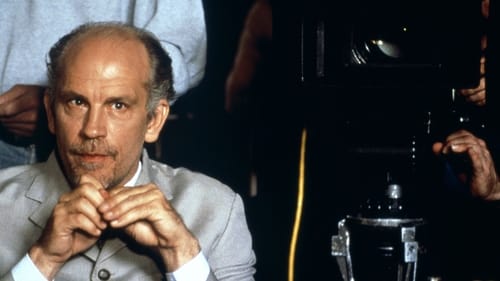
Screenplay
The comfortable daily routines of aging Parisian actor Gilbert Valence, 76, are suddenly shaken when he learns that his wife, daughter, and son-in-law have been killed in a car crash. Having to take care of his now-orphaned grandson, he struggles to go on with his lifelong acting career like he's used to. But the roles he is offered -- a flashy TV show and a hectic last-minute replacement in an English-language film of Joyce's Ulysses -- finally convince him that it's time to retire.

Director
The comfortable daily routines of aging Parisian actor Gilbert Valence, 76, are suddenly shaken when he learns that his wife, daughter, and son-in-law have been killed in a car crash. Having to take care of his now-orphaned grandson, he struggles to go on with his lifelong acting career like he's used to. But the roles he is offered -- a flashy TV show and a hectic last-minute replacement in an English-language film of Joyce's Ulysses -- finally convince him that it's time to retire.

Writer
Siglo XVII. El padre jesuita Antonio Vieira es obligado a comparecer ante el Tribunal del Santo Oficio en Coimbra. Una serie de intrigas a sus espaldas le han colocado en una situación complicada tras la muerte de su amigo, el rey Joao IV. Ante los jueces hará un repaso de su vida, empezando por su juventud en Brasil y su papel como adalid de los indios nativos.

Director
Siglo XVII. El padre jesuita Antonio Vieira es obligado a comparecer ante el Tribunal del Santo Oficio en Coimbra. Una serie de intrigas a sus espaldas le han colocado en una situación complicada tras la muerte de su amigo, el rey Joao IV. Ante los jueces hará un repaso de su vida, empezando por su juventud en Brasil y su papel como adalid de los indios nativos.

Screenplay
La señorita De Chartres ha sufrido su primer desengaño amoroso. Una noche, una amiga de su madre le presenta a un médico de gran reputación, Jacques de Clèves. Este se enamora de ella, y ambos se casan, a pesar de que ella no le corresponde en su amor. En cambio, un cantante de moda sí hace nacer en ella este sentimiento. La lucha entre su matrimonio y sus sentimientos desembocarán en un callejón sin salida para la nueva señora de Clèves.

Director
La señorita De Chartres ha sufrido su primer desengaño amoroso. Una noche, una amiga de su madre le presenta a un médico de gran reputación, Jacques de Clèves. Este se enamora de ella, y ambos se casan, a pesar de que ella no le corresponde en su amor. En cambio, un cantante de moda sí hace nacer en ella este sentimiento. La lucha entre su matrimonio y sus sentimientos desembocarán en un callejón sin salida para la nueva señora de Clèves.

Tango Dancer
Película inspirada en tres obras de muy diferente naturaleza cuyas historias se hilvanan con ingenio. En la primera un padre anima a su hijo a suicidarse para evitar la decrepitud. En la segunda, situada en el Oporto de los años 30, Suzy es una prostituta que se debate entre la vida y la muerte. En la última, un amigo le cuenta al playboy que se ha enamorado de Suzy la vida de una joven campesina, Fisalina, que un buen día descubre que tiene los dedos de oro.

Screenplay
Película inspirada en tres obras de muy diferente naturaleza cuyas historias se hilvanan con ingenio. En la primera un padre anima a su hijo a suicidarse para evitar la decrepitud. En la segunda, situada en el Oporto de los años 30, Suzy es una prostituta que se debate entre la vida y la muerte. En la última, un amigo le cuenta al playboy que se ha enamorado de Suzy la vida de una joven campesina, Fisalina, que un buen día descubre que tiene los dedos de oro.

Director
Película inspirada en tres obras de muy diferente naturaleza cuyas historias se hilvanan con ingenio. En la primera un padre anima a su hijo a suicidarse para evitar la decrepitud. En la segunda, situada en el Oporto de los años 30, Suzy es una prostituta que se debate entre la vida y la muerte. En la última, un amigo le cuenta al playboy que se ha enamorado de Suzy la vida de una joven campesina, Fisalina, que un buen día descubre que tiene los dedos de oro.
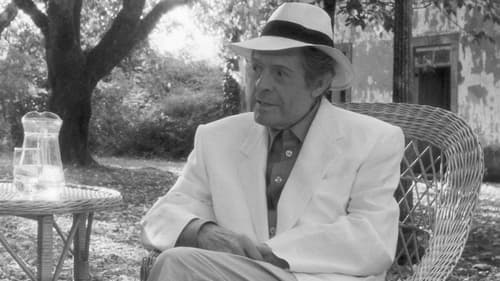
Self
En 1996, Marcello Mastroianni se dispuso a recordar el pasado, frente a la realizadora Anna Maria Tató, la mujer que compartió con él los veintidós últimos años de su vida. El resultado es este repertorio de anécdotas, confesiones y memorias narradas por el protagonista en primera persona. (FILMAFFINITY)
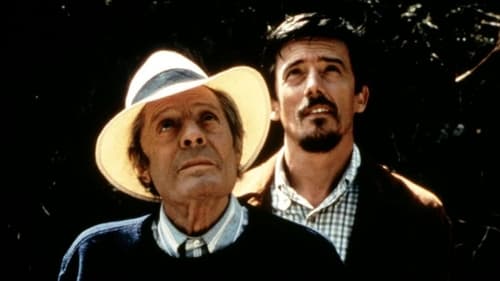
Writer
Manoel is an aging film director who travels with the film crew through Portugal in search of the origins of Afonso, a famous French actor whose father emigrated from Portugal to France and in process remembers his own youth.

Driver
Manoel is an aging film director who travels with the film crew through Portugal in search of the origins of Afonso, a famous French actor whose father emigrated from Portugal to France and in process remembers his own youth.

Director
Manoel is an aging film director who travels with the film crew through Portugal in search of the origins of Afonso, a famous French actor whose father emigrated from Portugal to France and in process remembers his own youth.

Screenplay
This French language drama from Portuguese filmmaker Manoel de Oliveira takes an ironic look at the pretentiousness of international jet-setters while simultaneously examining an obsessive romantic relationship between an aging Lothario and a beautiful married woman. The tale begins at a garden party in a lovely villa in the Azores held by Rogerio and Leonor for handsome, middle-aged Michel and his mistress Irene, a noted Greek movie star. The guests aren't there long before an obvious attraction between Leonor and Michel prompts them to head for a private beach (their tryst, if there was one, occurs off-camera). Five years later, the foursome again meet for a garden party and once again they pair off after spending much time discussing gender differences, emotion, social insight and exchanging witty bon mots.

Director
This French language drama from Portuguese filmmaker Manoel de Oliveira takes an ironic look at the pretentiousness of international jet-setters while simultaneously examining an obsessive romantic relationship between an aging Lothario and a beautiful married woman. The tale begins at a garden party in a lovely villa in the Azores held by Rogerio and Leonor for handsome, middle-aged Michel and his mistress Irene, a noted Greek movie star. The guests aren't there long before an obvious attraction between Leonor and Michel prompts them to head for a private beach (their tryst, if there was one, occurs off-camera). Five years later, the foursome again meet for a garden party and once again they pair off after spending much time discussing gender differences, emotion, social insight and exchanging witty bon mots.

"Enjoying an old port wine together, I was talking with Manoël about the bridges of Douro, and immediately we were of the same opinion: of all these bridges, the great work of art in the capital of modern architecture is the bridge that Gustave Eiffel had done before building his tower of Paris. In less than five minutes, the project was constructed: Manoël was writing a poem that we will film with our friends Bernard, Jérôme, and François. And our dreams of childhood were made in less than a week by going back and forth to the banks of Douro, on foot, then by car, then in a helicopter, back to where we were following these marvelous clouds, with Manoël and me screaming stanzas of a poem inspired by the wind, the water, and friendship." - Jean Rouch

Screenplay
"Enjoying an old port wine together, I was talking with Manoël about the bridges of Douro, and immediately we were of the same opinion: of all these bridges, the great work of art in the capital of modern architecture is the bridge that Gustave Eiffel had done before building his tower of Paris. In less than five minutes, the project was constructed: Manoël was writing a poem that we will film with our friends Bernard, Jérôme, and François. And our dreams of childhood were made in less than a week by going back and forth to the banks of Douro, on foot, then by car, then in a helicopter, back to where we were following these marvelous clouds, with Manoël and me screaming stanzas of a poem inspired by the wind, the water, and friendship." - Jean Rouch

Director
"Enjoying an old port wine together, I was talking with Manoël about the bridges of Douro, and immediately we were of the same opinion: of all these bridges, the great work of art in the capital of modern architecture is the bridge that Gustave Eiffel had done before building his tower of Paris. In less than five minutes, the project was constructed: Manoël was writing a poem that we will film with our friends Bernard, Jérôme, and François. And our dreams of childhood were made in less than a week by going back and forth to the banks of Douro, on foot, then by car, then in a helicopter, back to where we were following these marvelous clouds, with Manoël and me screaming stanzas of a poem inspired by the wind, the water, and friendship." - Jean Rouch
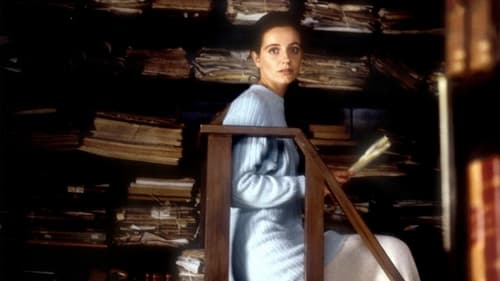
Editor
The journey of Michael Padovic, an American professor who arrives with his wife, Helene, at a Portuguese convent where he expects to find the documents needed to prove his theory: Shakespeare was born in Spain; not in England.

Writer
The journey of Michael Padovic, an American professor who arrives with his wife, Helene, at a Portuguese convent where he expects to find the documents needed to prove his theory: Shakespeare was born in Spain; not in England.

Director
The journey of Michael Padovic, an American professor who arrives with his wife, Helene, at a Portuguese convent where he expects to find the documents needed to prove his theory: Shakespeare was born in Spain; not in England.
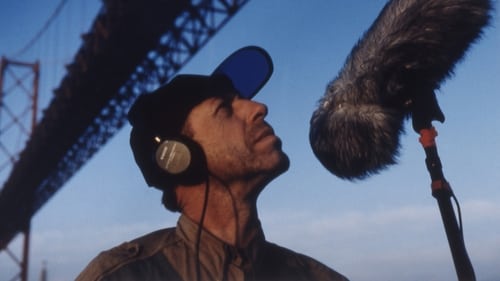
Himself
Es un homenaje de Wim Wender a Lisboa y al cine. Un ingeniero de sonido recibe una postal de un amigo que, en ese momento, está rodando una película en Lisboa. Deberá atravesar Europa para encontrarlo y prestarle ayuda.

Editor
A blind beggar is robbed of his chest of money. The theft leads to a dramatic situation in the street where he begs every day.

Writer
A blind beggar is robbed of his chest of money. The theft leads to a dramatic situation in the street where he begs every day.

Adaptation
A blind beggar is robbed of his chest of money. The theft leads to a dramatic situation in the street where he begs every day.

Director
A blind beggar is robbed of his chest of money. The theft leads to a dramatic situation in the street where he begs every day.

Paulo Rocha catches up with his “beloved subject” in Porto, where he made Douro, Faina Fluvial in 1929, and where today Oliveira reminisces about the figure of his father, his first experience of cinema as an actor, his past as a racing driver, his first technical experiences…
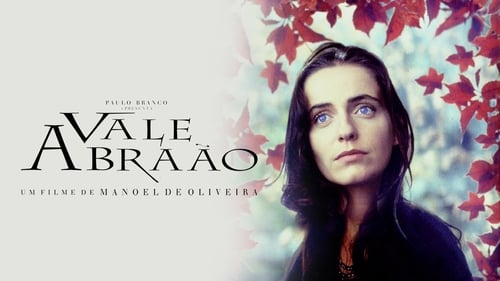
Editor
Ema es una mujer de una belleza desafiante, y no sólo para Carlos, su marido, con quien se casó sin amor. Su gusto por el lujo y lo refinado, las ilusiones que tiene por la vida, el deseo que inspira a los hombres... todo ello le hace valedora del sobrenombre "La pequeña Bavary".

Screenplay
Ema es una mujer de una belleza desafiante, y no sólo para Carlos, su marido, con quien se casó sin amor. Su gusto por el lujo y lo refinado, las ilusiones que tiene por la vida, el deseo que inspira a los hombres... todo ello le hace valedora del sobrenombre "La pequeña Bavary".

Director
Ema es una mujer de una belleza desafiante, y no sólo para Carlos, su marido, con quien se casó sin amor. Su gusto por el lujo y lo refinado, las ilusiones que tiene por la vida, el deseo que inspira a los hombres... todo ello le hace valedora del sobrenombre "La pequeña Bavary".

Editor
Portrait of the last days of the life of Portuguese writer Camilo Castelo Branco.

Screenplay
Portrait of the last days of the life of Portuguese writer Camilo Castelo Branco.

Director
Portrait of the last days of the life of Portuguese writer Camilo Castelo Branco.
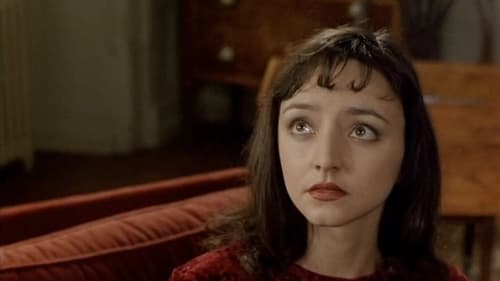
En una "Casa de Enajenados", se entrecruzan personajes perseguidos por ideas obsesivas como personas alucinadas. Cada cual a su manera tomándose unos por figuras bíblicas, tales como: los Fariseos, Adán, Eva, Jesús, Lázaro, Marta y María, otros como personajes de romance, como Raskolnikov y Sónia de “Crimen y Castigo”, o Ivan y Aliocha de los “Hermanos Karamazov”; otro que encarna al Filósofo del “Anti-Cristo”, y otro que se cree personificar al Profeta de la “Salvación del Mundo”.

Director
En una "Casa de Enajenados", se entrecruzan personajes perseguidos por ideas obsesivas como personas alucinadas. Cada cual a su manera tomándose unos por figuras bíblicas, tales como: los Fariseos, Adán, Eva, Jesús, Lázaro, Marta y María, otros como personajes de romance, como Raskolnikov y Sónia de “Crimen y Castigo”, o Ivan y Aliocha de los “Hermanos Karamazov”; otro que encarna al Filósofo del “Anti-Cristo”, y otro que se cree personificar al Profeta de la “Salvación del Mundo”.

Editor
En una "Casa de Enajenados", se entrecruzan personajes perseguidos por ideas obsesivas como personas alucinadas. Cada cual a su manera tomándose unos por figuras bíblicas, tales como: los Fariseos, Adán, Eva, Jesús, Lázaro, Marta y María, otros como personajes de romance, como Raskolnikov y Sónia de “Crimen y Castigo”, o Ivan y Aliocha de los “Hermanos Karamazov”; otro que encarna al Filósofo del “Anti-Cristo”, y otro que se cree personificar al Profeta de la “Salvación del Mundo”.

Screenplay
En una "Casa de Enajenados", se entrecruzan personajes perseguidos por ideas obsesivas como personas alucinadas. Cada cual a su manera tomándose unos por figuras bíblicas, tales como: los Fariseos, Adán, Eva, Jesús, Lázaro, Marta y María, otros como personajes de romance, como Raskolnikov y Sónia de “Crimen y Castigo”, o Ivan y Aliocha de los “Hermanos Karamazov”; otro que encarna al Filósofo del “Anti-Cristo”, y otro que se cree personificar al Profeta de la “Salvación del Mundo”.

Writer
En una "Casa de Enajenados", se entrecruzan personajes perseguidos por ideas obsesivas como personas alucinadas. Cada cual a su manera tomándose unos por figuras bíblicas, tales como: los Fariseos, Adán, Eva, Jesús, Lázaro, Marta y María, otros como personajes de romance, como Raskolnikov y Sónia de “Crimen y Castigo”, o Ivan y Aliocha de los “Hermanos Karamazov”; otro que encarna al Filósofo del “Anti-Cristo”, y otro que se cree personificar al Profeta de la “Salvación del Mundo”.
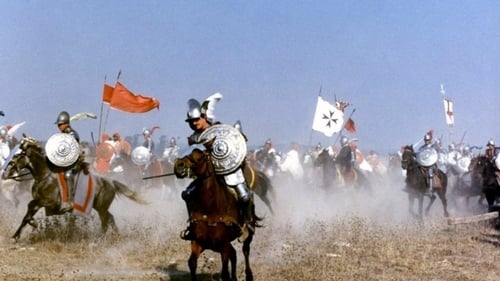
Screenplay
Episodes from entire military history of Portugal are told through flashbacks as a professorish soldier recounts them while marching through a Portuguese African colony in 1973.

Editor
Episodes from entire military history of Portugal are told through flashbacks as a professorish soldier recounts them while marching through a Portuguese African colony in 1973.

Narrator
Episodes from entire military history of Portugal are told through flashbacks as a professorish soldier recounts them while marching through a Portuguese African colony in 1973.

Director
Episodes from entire military history of Portugal are told through flashbacks as a professorish soldier recounts them while marching through a Portuguese African colony in 1973.

Director
An artistic and poetic documentary about the meaning of the Portuguese flag.
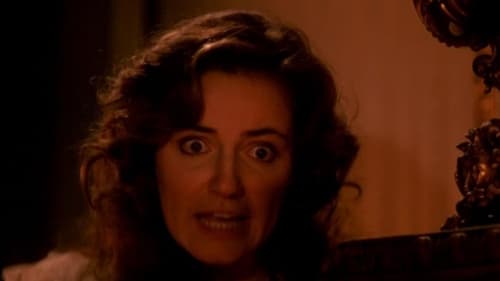
Editor
This odd film is a major representative of an even odder film genre: direct-to-celluloid opera. It was commissioned by the Portuguese master of style, director Manoel de Oliveira from composer João Paes. Musically, it ranges from 19th-century romanticism to popular, modernist and even "post-modernist" styles. In the initially tame story, a host-narrator tells the story of a wedding between the two lovebirds: Viscount d'Aveleda and the beautiful Marguerite. However, what happens in the bridal chamber is incredibly bizarre. The events after that are even stranger (the film out-does even Luis Buñuel in that department), and the wedding guests and family indulge in cannibalism, among other perversions.

Screenplay
This odd film is a major representative of an even odder film genre: direct-to-celluloid opera. It was commissioned by the Portuguese master of style, director Manoel de Oliveira from composer João Paes. Musically, it ranges from 19th-century romanticism to popular, modernist and even "post-modernist" styles. In the initially tame story, a host-narrator tells the story of a wedding between the two lovebirds: Viscount d'Aveleda and the beautiful Marguerite. However, what happens in the bridal chamber is incredibly bizarre. The events after that are even stranger (the film out-does even Luis Buñuel in that department), and the wedding guests and family indulge in cannibalism, among other perversions.

Director
This odd film is a major representative of an even odder film genre: direct-to-celluloid opera. It was commissioned by the Portuguese master of style, director Manoel de Oliveira from composer João Paes. Musically, it ranges from 19th-century romanticism to popular, modernist and even "post-modernist" styles. In the initially tame story, a host-narrator tells the story of a wedding between the two lovebirds: Viscount d'Aveleda and the beautiful Marguerite. However, what happens in the bridal chamber is incredibly bizarre. The events after that are even stranger (the film out-does even Luis Buñuel in that department), and the wedding guests and family indulge in cannibalism, among other perversions.

Screenplay
Manoel de Oliveira plays his film in three stages: the first part - a play, the second can be roughly defined as a silent film (with the behind the scenes read excerpts from Beckett works), but in the end the director brilliantly performs the same material of the avant-garde exercise. Surprisingly, a joke, repeated three times, each time everything sounds fresh and develops into an almost verbatim adaptation of the biblical "Book of Job" - a spectacular point in a parable about how hard to empathize with other people's misery, when you have your own.

Director
Manoel de Oliveira plays his film in three stages: the first part - a play, the second can be roughly defined as a silent film (with the behind the scenes read excerpts from Beckett works), but in the end the director brilliantly performs the same material of the avant-garde exercise. Surprisingly, a joke, repeated three times, each time everything sounds fresh and develops into an almost verbatim adaptation of the biblical "Book of Job" - a spectacular point in a parable about how hard to empathize with other people's misery, when you have your own.

Director
A documentary following the process of sculpting in stone, from the creation to the final work of art.

Screenplay
During the century of the Spanish Gold, Doña Prouhèze, wife of a nobleman, deeply loves Don Rodrigo, who is forced to leave Spain and go to America. Meanwhile Prouhèze is sent to Africa to rule the city of Mogador. Ten years later Rodrigo leaves America and travels to Africa in search of Prouhèze to find out that she died and eventually meeting her daughter.

Director
During the century of the Spanish Gold, Doña Prouhèze, wife of a nobleman, deeply loves Don Rodrigo, who is forced to leave Spain and go to America. Meanwhile Prouhèze is sent to Africa to rule the city of Mogador. Ten years later Rodrigo leaves America and travels to Africa in search of Prouhèze to find out that she died and eventually meeting her daughter.

Director
Seventeen experts on history and arts deliver brief lessons on their favorite subjects, considered the most relevant to cover nine hundred years of Portuguese culture. The camera shows from a distance, or in minute detail, the monuments or art pieces considered, or even the texts discussed by the narrators, reenacted on stage or recited by actors.

Director
Part of a series in which foreign filmmakers portray a region or town in France. Manoel de Oliveira looks at Nice.

Padre
The film was to be a documentary, but evolved during production to a fictional film. It nevertheless adheres strictly to the poems and letters exchanged by two of the most outstanding names of the Modernist Movement, Fernando Pessoa (in Lisbon) and Mário de Sá-Carneiro (in Paris). Their endless conversation was dramatically and suddenly terminated.
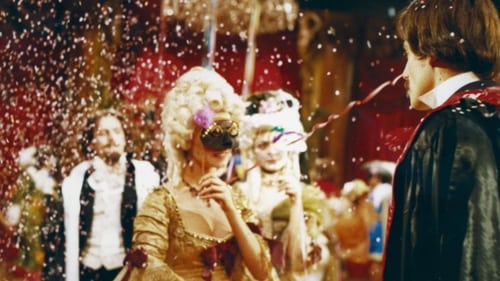
Screenplay
Narra la historia de amor del escritor Camilo Castelo Branco por Fanny Owen, una muchacha de origen inglés que, por su parte, se enamora de un compañero, amigo y rival del escritor, José Augusto.

Director
Narra la historia de amor del escritor Camilo Castelo Branco por Fanny Owen, una muchacha de origen inglés que, por su parte, se enamora de un compañero, amigo y rival del escritor, José Augusto.

N°102
Reel 11 of Gérard Courant's on-going Cinematon series.
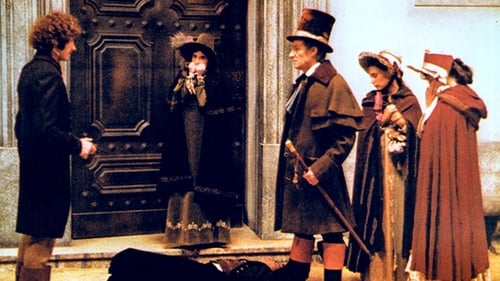
Narrator (voice)
A story about doomed love between two people from different worlds and the impact in their lives.

Screenplay
A story about doomed love between two people from different worlds and the impact in their lives.

Director
A story about doomed love between two people from different worlds and the impact in their lives.
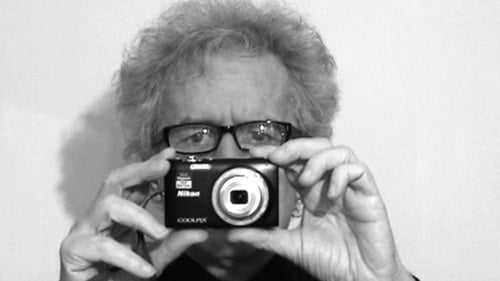
N°102
Cinématon is a 156-hour long experimental film by French director Gérard Courant. It was the longest film ever released until 2011. Composed over 36 years from 1978 until 2006, it consists of a series of over 2,821 silent vignettes (cinématons), each 3 minutes and 25 seconds long, of various celebrities, artists, journalists and friends of the director, each doing whatever they want for the allotted time. Subjects of the film include directors Barbet Schroeder, Nagisa Oshima, Volker Schlöndorff, Ken Loach, Benjamin Cuq, Youssef Chahine, Wim Wenders, Joseph Losey, Jean-Luc Godard, Samuel Fuller and Terry Gilliam, chess grandmaster Joël Lautier, and actors Roberto Benigni, Stéphane Audran, Julie Delpy and Lesley Chatterley. Gilliam is featured eating a 100-franc note, while Fuller smokes a cigar. Courant's favourite subject was a 7-month-old baby. The film was screened in its then-entirety in Avignon in November 2009 and was screened in Redondo Beach, CA on April 9, 2010.
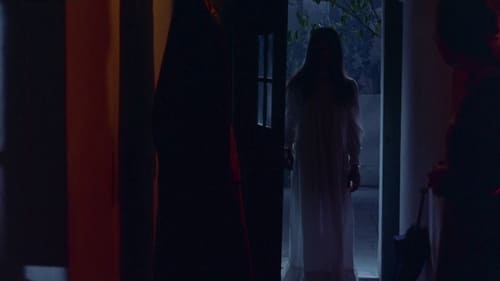
Director
A young girl, Benilde, so protected by her religious family that she seemingly knows nothing about procreation, insists that her mysterious pregnancy is a miracle; however, her distressed bourgeois family decides that Benilde has lost her mind.

Editor
A young girl, Benilde, so protected by her religious family that she seemingly knows nothing about procreation, insists that her mysterious pregnancy is a miracle; however, her distressed bourgeois family decides that Benilde has lost her mind.

Screenplay
A young girl, Benilde, so protected by her religious family that she seemingly knows nothing about procreation, insists that her mysterious pregnancy is a miracle; however, her distressed bourgeois family decides that Benilde has lost her mind.

Editor
This is an intriguing avant-garde look at what motivates the leisurely classes in Portugal, for better or worse, by director Manoel de Oliveira. Set in a spacious country home peopled with a wide-ranging cast of characters, the drama begins as the friends of a widow come to console her on the loss of her husband. But at one point, the widow goes upstairs, encounters her husband, and is faced with his accusations about the past. This event and others provide the means of revealing the petty, self-serving, egocentric, and romantic pursuits of the melange of people in the house. - Eleanor Mannikka, Rovi

Producer
This is an intriguing avant-garde look at what motivates the leisurely classes in Portugal, for better or worse, by director Manoel de Oliveira. Set in a spacious country home peopled with a wide-ranging cast of characters, the drama begins as the friends of a widow come to console her on the loss of her husband. But at one point, the widow goes upstairs, encounters her husband, and is faced with his accusations about the past. This event and others provide the means of revealing the petty, self-serving, egocentric, and romantic pursuits of the melange of people in the house. - Eleanor Mannikka, Rovi

Screenplay
This is an intriguing avant-garde look at what motivates the leisurely classes in Portugal, for better or worse, by director Manoel de Oliveira. Set in a spacious country home peopled with a wide-ranging cast of characters, the drama begins as the friends of a widow come to console her on the loss of her husband. But at one point, the widow goes upstairs, encounters her husband, and is faced with his accusations about the past. This event and others provide the means of revealing the petty, self-serving, egocentric, and romantic pursuits of the melange of people in the house. - Eleanor Mannikka, Rovi

Director
This is an intriguing avant-garde look at what motivates the leisurely classes in Portugal, for better or worse, by director Manoel de Oliveira. Set in a spacious country home peopled with a wide-ranging cast of characters, the drama begins as the friends of a widow come to console her on the loss of her husband. But at one point, the widow goes upstairs, encounters her husband, and is faced with his accusations about the past. This event and others provide the means of revealing the petty, self-serving, egocentric, and romantic pursuits of the melange of people in the house. - Eleanor Mannikka, Rovi

Writer
Documentary by Manoel de Oliveira filmed in 1965 and exhibited in 2008 in the Venice Film Festival.

Director
Documentary by Manoel de Oliveira filmed in 1965 and exhibited in 2008 in the Venice Film Festival.

Sound Designer
The camera shows the vivid paintings by late Júlio Régio, with a narrative by his brother, while guitar tunes underline the mood and rhythm of the cinematography.

Editor
The camera shows the vivid paintings by late Júlio Régio, with a narrative by his brother, while guitar tunes underline the mood and rhythm of the cinematography.

Director of Photography
The camera shows the vivid paintings by late Júlio Régio, with a narrative by his brother, while guitar tunes underline the mood and rhythm of the cinematography.

Producer
The camera shows the vivid paintings by late Júlio Régio, with a narrative by his brother, while guitar tunes underline the mood and rhythm of the cinematography.

Screenplay
The camera shows the vivid paintings by late Júlio Régio, with a narrative by his brother, while guitar tunes underline the mood and rhythm of the cinematography.

Director
The camera shows the vivid paintings by late Júlio Régio, with a narrative by his brother, while guitar tunes underline the mood and rhythm of the cinematography.

Director
A look at the life in the small village Vilaverdinho, in the North of Portugal. Oliveira made this film as a present for a friend. It has only been publicly shown once.

Director of Photography
Two friends decide to go hunting but without guns, so that no accident will happen. As they stroll and talk, one of them falls into a hole in a hidden marshland. His friend runs away, and manages to gather a number of men that were in the vicinity. They form a human chain to pull the victim out, but their affliction mounts, as they have no strategy for doing it, and they can't understand each other.

Sound Designer
Two friends decide to go hunting but without guns, so that no accident will happen. As they stroll and talk, one of them falls into a hole in a hidden marshland. His friend runs away, and manages to gather a number of men that were in the vicinity. They form a human chain to pull the victim out, but their affliction mounts, as they have no strategy for doing it, and they can't understand each other.

Editor
Two friends decide to go hunting but without guns, so that no accident will happen. As they stroll and talk, one of them falls into a hole in a hidden marshland. His friend runs away, and manages to gather a number of men that were in the vicinity. They form a human chain to pull the victim out, but their affliction mounts, as they have no strategy for doing it, and they can't understand each other.

Producer
Two friends decide to go hunting but without guns, so that no accident will happen. As they stroll and talk, one of them falls into a hole in a hidden marshland. His friend runs away, and manages to gather a number of men that were in the vicinity. They form a human chain to pull the victim out, but their affliction mounts, as they have no strategy for doing it, and they can't understand each other.

Writer
Two friends decide to go hunting but without guns, so that no accident will happen. As they stroll and talk, one of them falls into a hole in a hidden marshland. His friend runs away, and manages to gather a number of men that were in the vicinity. They form a human chain to pull the victim out, but their affliction mounts, as they have no strategy for doing it, and they can't understand each other.

Director
Two friends decide to go hunting but without guns, so that no accident will happen. As they stroll and talk, one of them falls into a hole in a hidden marshland. His friend runs away, and manages to gather a number of men that were in the vicinity. They form a human chain to pull the victim out, but their affliction mounts, as they have no strategy for doing it, and they can't understand each other.

Un zapatero de Lisboa enseña el oficio a su sobrino de 18 años, mientras éste se enamora de una joven a la que propone matrimonio.
Críticas
"Es un fantástico redescubrimiento en el sentido más puro (...) un regalo para cinéfilos" Kevin Jagernauth: The Playlist

Sound Designer
Local people of Curalha, a small village, keep a tradition of representing the Passion of Jesus, according to a 16th century text.

Editor
Local people of Curalha, a small village, keep a tradition of representing the Passion of Jesus, according to a 16th century text.

Director of Photography
Local people of Curalha, a small village, keep a tradition of representing the Passion of Jesus, according to a 16th century text.

Producer
Local people of Curalha, a small village, keep a tradition of representing the Passion of Jesus, according to a 16th century text.

Screenplay
Local people of Curalha, a small village, keep a tradition of representing the Passion of Jesus, according to a 16th century text.

Director
Local people of Curalha, a small village, keep a tradition of representing the Passion of Jesus, according to a 16th century text.

Sound Designer
Each day, Man must work around the clock to produce and acquire bread: throwing the seeds into earth, helping the breeding of the corn, the corn's recolt, transport to the mills - traditional or industrial ones -, manipulation of the flour into actual bread, transport to a variety of locations and consumers. And then, after the consumption, the cycle restarts.

Editor
Each day, Man must work around the clock to produce and acquire bread: throwing the seeds into earth, helping the breeding of the corn, the corn's recolt, transport to the mills - traditional or industrial ones -, manipulation of the flour into actual bread, transport to a variety of locations and consumers. And then, after the consumption, the cycle restarts.

Director of Photography
Each day, Man must work around the clock to produce and acquire bread: throwing the seeds into earth, helping the breeding of the corn, the corn's recolt, transport to the mills - traditional or industrial ones -, manipulation of the flour into actual bread, transport to a variety of locations and consumers. And then, after the consumption, the cycle restarts.

Producer
Each day, Man must work around the clock to produce and acquire bread: throwing the seeds into earth, helping the breeding of the corn, the corn's recolt, transport to the mills - traditional or industrial ones -, manipulation of the flour into actual bread, transport to a variety of locations and consumers. And then, after the consumption, the cycle restarts.

Screenplay
Each day, Man must work around the clock to produce and acquire bread: throwing the seeds into earth, helping the breeding of the corn, the corn's recolt, transport to the mills - traditional or industrial ones -, manipulation of the flour into actual bread, transport to a variety of locations and consumers. And then, after the consumption, the cycle restarts.

Director
Each day, Man must work around the clock to produce and acquire bread: throwing the seeds into earth, helping the breeding of the corn, the corn's recolt, transport to the mills - traditional or industrial ones -, manipulation of the flour into actual bread, transport to a variety of locations and consumers. And then, after the consumption, the cycle restarts.
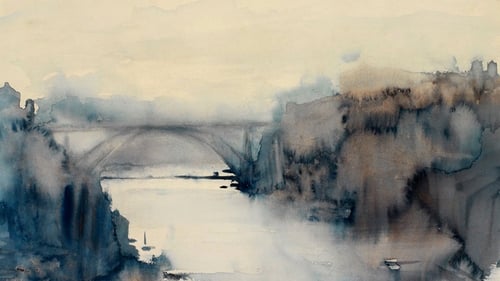
Editor
The painter António Cruz wanders around the city of Porto painting what he sees: old and modern buildings, people arriving and leaving work in the factories, children playing. The impressionist realism of Cruz’s drawings dissolves into Oliveira’s vision of Porto, which at the same time portrays the painter and his work.

Director of Photography
The painter António Cruz wanders around the city of Porto painting what he sees: old and modern buildings, people arriving and leaving work in the factories, children playing. The impressionist realism of Cruz’s drawings dissolves into Oliveira’s vision of Porto, which at the same time portrays the painter and his work.

Producer
The painter António Cruz wanders around the city of Porto painting what he sees: old and modern buildings, people arriving and leaving work in the factories, children playing. The impressionist realism of Cruz’s drawings dissolves into Oliveira’s vision of Porto, which at the same time portrays the painter and his work.

Screenplay
The painter António Cruz wanders around the city of Porto painting what he sees: old and modern buildings, people arriving and leaving work in the factories, children playing. The impressionist realism of Cruz’s drawings dissolves into Oliveira’s vision of Porto, which at the same time portrays the painter and his work.

Director
The painter António Cruz wanders around the city of Porto painting what he sees: old and modern buildings, people arriving and leaving work in the factories, children playing. The impressionist realism of Cruz’s drawings dissolves into Oliveira’s vision of Porto, which at the same time portrays the painter and his work.

Editor
La película sigue a unos niños por las calles de Oporto, donde el grito de guerra es "Aniki-Bóbó!". El jefe del grupo, Eduardinho lucha con otro niño, Carlitos, por ganarse la amistad de Terezinha, la única niña del grupo.

Co-Producer
La película sigue a unos niños por las calles de Oporto, donde el grito de guerra es "Aniki-Bóbó!". El jefe del grupo, Eduardinho lucha con otro niño, Carlitos, por ganarse la amistad de Terezinha, la única niña del grupo.

Screenplay
La película sigue a unos niños por las calles de Oporto, donde el grito de guerra es "Aniki-Bóbó!". El jefe del grupo, Eduardinho lucha con otro niño, Carlitos, por ganarse la amistad de Terezinha, la única niña del grupo.

Director
La película sigue a unos niños por las calles de Oporto, donde el grito de guerra es "Aniki-Bóbó!". El jefe del grupo, Eduardinho lucha con otro niño, Carlitos, por ganarse la amistad de Terezinha, la única niña del grupo.

Sound
Short documentary about the town of Famalicão, in the North of Portugal.

Writer
Short documentary about the town of Famalicão, in the North of Portugal.

Director
Short documentary about the town of Famalicão, in the North of Portugal.

Executive Producer
The film exhibited the community and the beach, "how I new and it was shown to me" (Manoel de Oliveira) by the Meneres family, that had a house in Miramar. The film is currently lost.

Editor
The film exhibited the community and the beach, "how I new and it was shown to me" (Manoel de Oliveira) by the Meneres family, that had a house in Miramar. The film is currently lost.

Screenplay
The film exhibited the community and the beach, "how I new and it was shown to me" (Manoel de Oliveira) by the Meneres family, that had a house in Miramar. The film is currently lost.

Director
The film exhibited the community and the beach, "how I new and it was shown to me" (Manoel de Oliveira) by the Meneres family, that had a house in Miramar. The film is currently lost.

Writer
Reflecting the filmmaker's passion for automobiles, who in his youth participated in car races, the film portrays the attempt to manufacture a new model in the Ford factory in the city of Porto.

Director
Reflecting the filmmaker's passion for automobiles, who in his youth participated in car races, the film portrays the attempt to manufacture a new model in the Ford factory in the city of Porto.

Director of Photography
A series of images documenting the floods of the river Tagus. This film has been recovered and made available by the Cinemateca Portuguesa.

Director
A series of images documenting the floods of the river Tagus. This film has been recovered and made available by the Cinemateca Portuguesa.

Carlos
Vasco is a medical student in Lisbon, supported by his rich aunts, whom he had falsely told he had already graduated. In fact, he devotes himself to a bohemian life, preferring the popular fairs and pretty women, especially Alice, a seamstress from the Castelinhos quarter, which rather upsets her ambitious father, tailor Caetano, who is familiar with Vasco's debts. After failing yet another final exam, he is surprised by his aunts' announcement that they will visit him in Lisbon to see his practice.

Screenplay
A look at various statues in the city of Lisbon. This film is incomplete and was distributed against the will of the director.

Director of Photography
A look at various statues in the city of Lisbon. This film is incomplete and was distributed against the will of the director.

Director
A look at various statues in the city of Lisbon. This film is incomplete and was distributed against the will of the director.

Writer
Filmed with the same camera and the film stock remains of Douro, Faina Fluvial, portrays the inauguration of the hydroelectric power plant of Ermal, owned by Manoel de Oliveira's father.

Director
Filmed with the same camera and the film stock remains of Douro, Faina Fluvial, portrays the inauguration of the hydroelectric power plant of Ermal, owned by Manoel de Oliveira's father.

Editor
Short silent documentary from 1931 about those working on the River Douro in Oporto.

Writer
Short silent documentary from 1931 about those working on the River Douro in Oporto.

Director
Short silent documentary from 1931 about those working on the River Douro in Oporto.

Aninhas (Aida Lupo), a paralyzed girl, asks for a miracle from the saint of her devotion, Our Lady of Lourdes, at the chapel of Penha (Guimarães), but her prayer is not heard - She turns her devotion to the Blessed Virgin directly, and joins the multitude that goes on a pilgrimage to the village where, ten years before, the Virgin Mary is said to have appeared to three child sheepherders.

Director
Manoel de Oliveira's homage to Vila do Conde, with a poem by José Régio. It was shot in 1965, but only completed in 2008.
